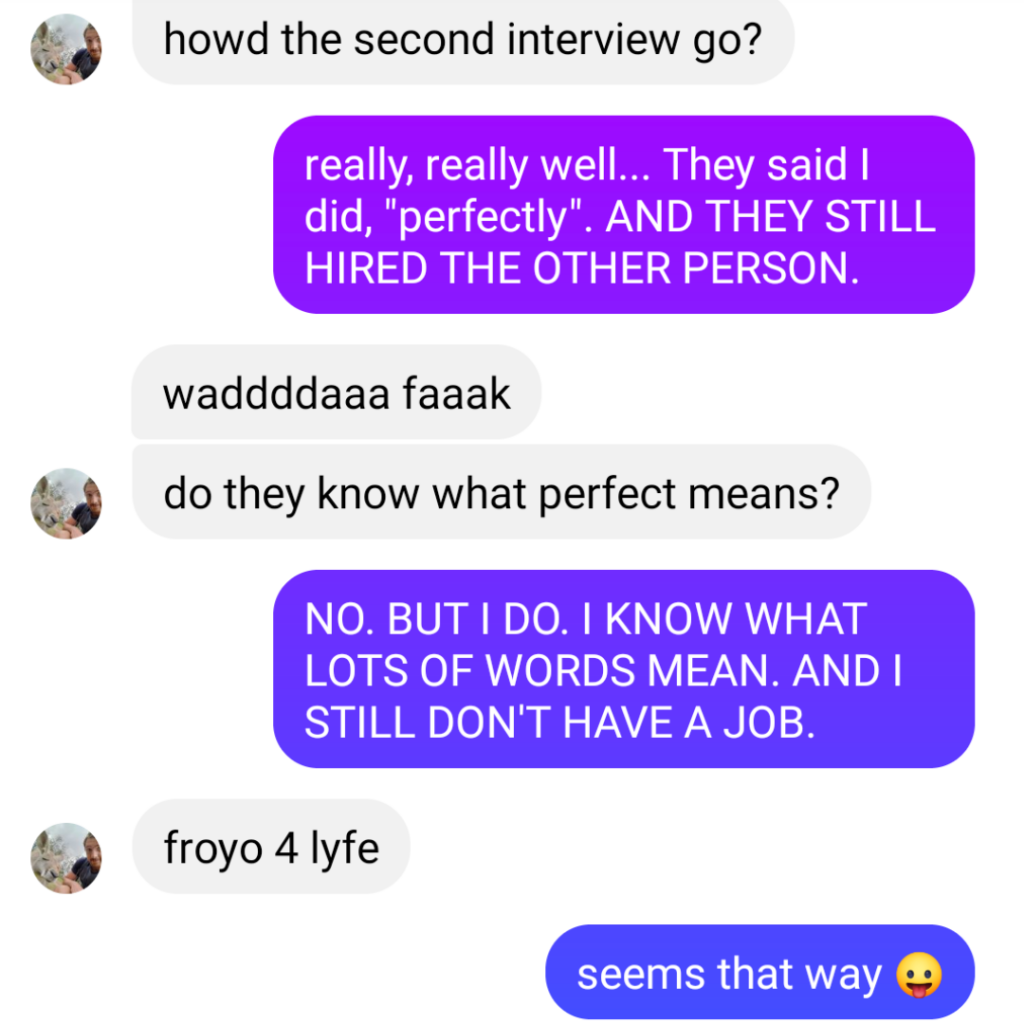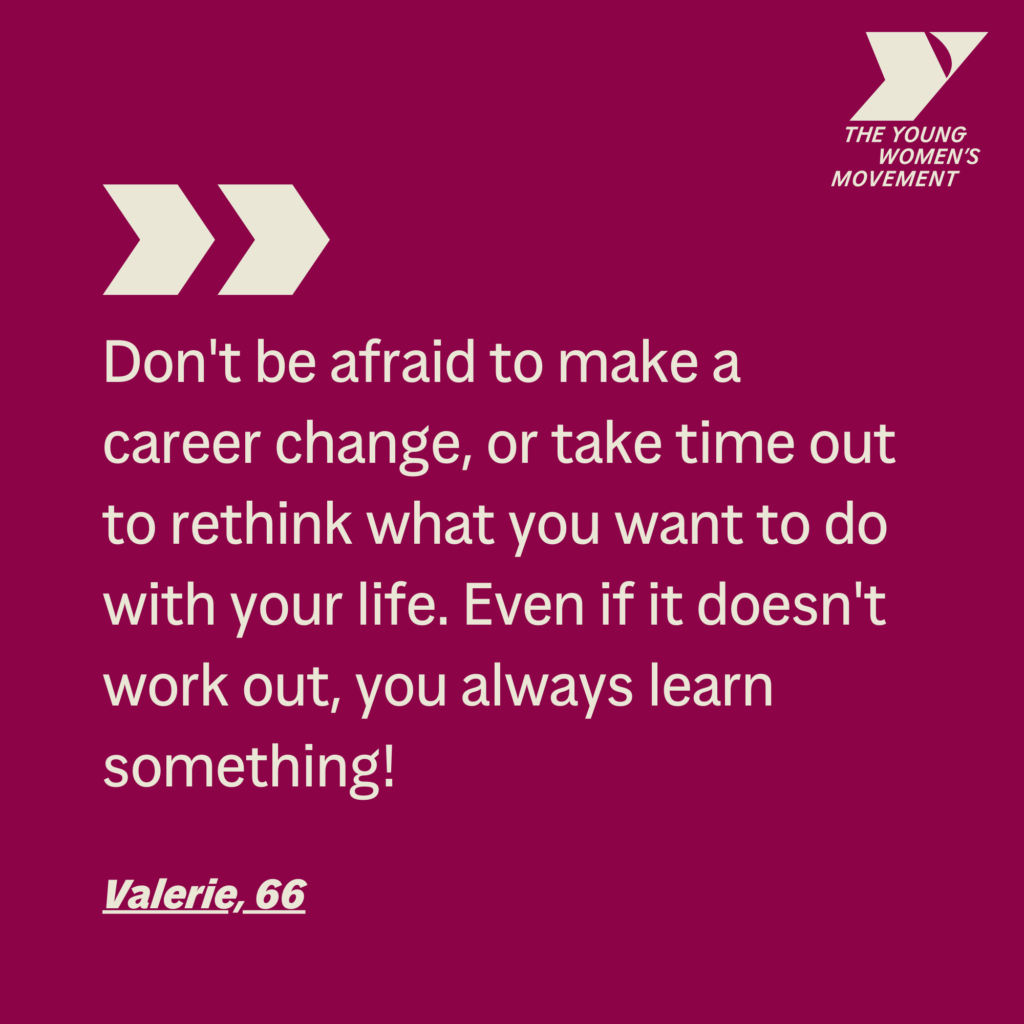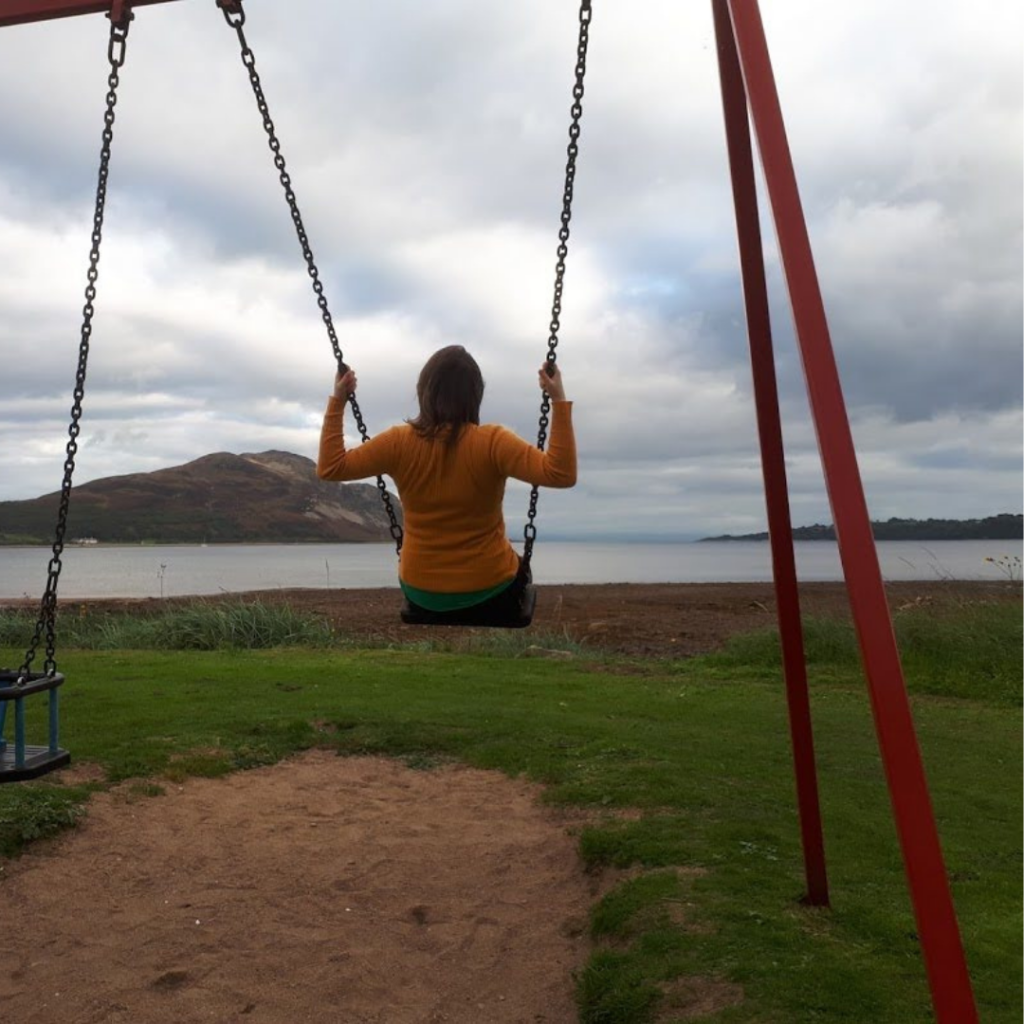In this article, originally written for The Herald for International Women’s Day 2024, our CEO Jenni Snell explores International Women’s Day and its role in the fight for gender equality.
- Heritage
- Leadership
- Rights
Feeling Fine at Twenty-Nine
30 is coming for me. On my last birthday, I turned 29. I am in the last of my 20s. Am I in the last year of my prime?
Culturally, I am supposed to fear ageing. Society says that the older I get, the less value I have as a woman. Women become spinsters and crones, while men get to become silver foxes. Men become bosses and climb ladders faster than women and pay gaps widen. Many studies have suggested that the perceived desirability for women drops after their late teens/early twenties, whereas men have their ‘peak desirability’ in their 40s. Another phenomenon is ‘the Invisible Woman Syndrome’, where older women feel overlooked. A survey by Gransnet found that 70% of older women believe that women become ‘invisible’ as they get older, but only a third (32%) think the same applies to men. They found that “women start to become ‘invisible’ at the age of 52, while men avoid this fate for more than a decade longer — the average age highlighted for men was 64”. Another study found that 80% of women worldwide said they had faced gendered ageism.
But I’m a feminist and I know lots of cool women in their 30s, 50s, and beyond. They lead exciting, fulfilling, and happy lives. So, why am I so worried? I am noticing a loud ticking noise. Choices about children, careers, and creative pursuits all seem to be looming a little larger. I am feeling some pressure to “become” in the next year: to get things sorted, to accomplish something impressive. This can feel overwhelming, and on bad days, terrifying!
Of course, there is lots of time left, but there are choices to make along the way. It feels like a good year to take stock and learn from the wisdom of the women around me. I wanted to reassure myself that big changes are possible at any stage in life. I reached out to family, friends, and colleagues. I asked each of them what they were up to at 29, where they are now, as well as advice from already living through it.
I started by talking about jobs as I have not had the easiest career path. My first full-time job was a graduate internship that I hated. I ended up quitting halfway through and moving back to Scotland. I then spent 6 months working in a frozen yoghurt shop whilst writing upwards of 100 job applications, doing interviews, and second interviews, all whilst getting nowhere.
I did a few short contracts in various offices, all with their own specific flavour of depressing. After what seemed like forever, I had a “big break” – I got a job that I thought was “the dream”. Sadly the reality didn’t match. After a long and drawn-out formal grievance procedure, I decided to chuck in “the dream” and instead find a job that didn’t make me want to cry every Sunday night. I found a new role, which I am still in, with a manager who is kind. This may seem like a low bar, but sadly for me, it is not!
This job is also part-time which gives me space and leaves me with the energy to pursue other projects (like writing blogs!). This is more common for women than men – with 38% of women working part-time vs. 14% of men.
I have changed jobs a lot over the years, averaging less than 1 year in each position. Statistics show that men stay in a job for 4.3 years, and women for 3.8 years, so I am definitely more of a ship jumper than the average person! So though I am settled where I am, I was eager to hear advice about making big moves.

I thought it was interesting that for grandma, her main advice was quit things that you hate – so that might explain some of my job history!
“I started working as a rep for Avon, a company selling cosmetics. I only did the job for 2-3 weeks, I hated it.”
— Carmel, 83
For some of the women I spoke to there was the question of finding meaningful employment; for others, working was a necessity that they tried to limit.
“I had previously taught English in Greece but since returning to the UK I was not sure if I wanted to continue teaching. I was also having a bit of a confidence crisis. I took a break and worked for the Police taking Crime Reports. In the end, I decided it wasn’t for me and resigned after six months and returned to teaching. At the time I regretted doing it but it stood me in good stead with new skills and experience, and learning about another side of life. I’ve often dined out on some of the stories from that crime room!” — Valerie, 66
“I worked in the financial sector. I had a seven year career break when I had my children. I started helping out at their school nursery as a parent helper, which prompted me to go back to college. This led to a job with the local council nursery, and then another job with the council and now I am working with a children’s charity – my dream job!” — Fiona, 48
“I was a full time parent, but I returned to work to help drag us out of poverty. I prioritised time over money and only worked as much as I had to, because life is short.”
— Claire, 59

The advice in this area from various women had similar threads running through it — be in control, be intentional about your choices, and be kind:
“You need to work out the red lines before you make the first moves. You can never remember what was so important that you prioritised it over a family/friendship event. I learned more from bad managers than I did from good managers, but you grow your style from both. Robustly manage your presenteeism at work and online. After seven years in a job, plan to move up or out, unless you are really making the difference you always wanted to make.” — Marguerite, 63
“Be kind. It’s so easy to be in the right. To be the smart arse. Be kind. Always give a fellow human being the benefit of the doubt. You never know when you might be the tiniest bit of light at the end of someone else’s tunnel.” — Isobel, 63
As I approach 30, lots of my friends and peers are settling down and getting married. Some are even having children. I don’t have plans like that on the horizon. This can sometimes feel like I am “falling behind”. By this age, my mum was married with two children. A large proportion of people I spoke to were married with kids by 30. But I am part of a larger trend in Scotland.
Fewer people are getting married: in 2019 there were 26,007 marriages in Scotland, which is the lowest figure since 1881. And those who are getting married are doing it older: in the mid-1970s the average bride and groom were 22.4 and 24.3 respectively, and in 2019 they were 32.9 and 34.5. Fewer people are having children: in 2019 there were 49,863 births – which is the lowest number ever recorded. And the average age of mothers rose from 26.0 in 1975 to 30.7 in 2019.
I have also been reflecting a lot about my own gender and sexuality recently. I have in the past identified as a cis woman, non-binary, gender fluid, and *shrug*, as well as straight, straight passing, bisexual, pansexual, androsexual, and *shrug*. I was interested to hear the thoughts of women across generations about big changes to their lives such as motherhood, changes in their romantic lives, as well as their gender and experiences of sexuality.
Those who became mothers described a huge change and a difficult journey:
“The biggest change in my life was becoming a mum. And it was the hardest thing I have ever done. It is incredibly lonely navigating motherhood alone. People are so quick to judge women as mothers.” — Isobel, 63
Others seemed almost apologetic to me, for being stay-at-home mothers:
“Sorry, but it is rather dull. I did enjoy being a mother and being at home for us all.” — Carmel, 83
Some had wise words for if I were to choose this path:
“Do not splash them all over social media. That cute toddler in a bath photo isn’t so cute when your self conscious 13 year old is at school!” — Linda, 61
“When I talk to new mums nowadays, I never give advice. I tell them they are wonderful because I might be the only one saying so. And it’s what they most need to hear.” — Isobel, 63
In terms of gender and sexuality, I was heartened to hear about the big changes people have taken since turning 30:
“Since 29 I have gender transitioned. And I am happy.” — Lesley
“I had been with a man, so heterosexually passing, since age 17. Then I was like wow, I’m 30 and I still don’t know this other part of my sexuality and it feels like I never will. I think I thought when I turned thirty I would suddenly become unattractive, and then any viability of discovering that was going to go out of the window. So that prompted a conversation with my husband about those feelings. It didn’t happen by the way — I didn’t turn 30 and suddenly become unattractive, and the world didn’t disappear.” — Nadia, 39
“Since 29, my partner and I split up. It was amicable but not without difficulty. We have slowly developed a really good co-parenting relationship, something I am really proud of. I fell in love with my best friend, she and I got together. She’s an amazing partner and mum. My new partner and I went through fertility treatment and had twins. We now have a big blended family and it’s very busy and often very noisy.” — Amy, 33
The advice for relationship, sex, and gender was similar to jobs advice — be bold and intentional:
“Do things (consensual!) out of your comfort zone.” — Linda, 61
“Look for a partner that you really like as a person: love lasts, lust dims.” — Linda, 61
“Don’t stay in a relationship if it doesn’t feel right.” — Valerie, 66
One of the biggest things that scare me about ageing is the idea of going down one path and closing other paths to you. I think the worry about ageing and getting it all done “in time” is amplified by the loss of my mother when she was still very young. I feel in a rush with a pressing sense of mortality. When I decide to put time into one project, it is time that is not invested in another. How much time will I have? Are these the right choices? Will they get me places I want to go?
So, I was excited to hear about the changes people made at different times in their lives and the changes they are looking forward to still making. It felt reassuring to hear that there is time and that instead of rushing to do as much as possible, it is more pleasant to slow down and enjoy what you are doing right now.
The advice from almost everyone was: “Try”.
In the advice about changes, another idea echoed through every interview was the importance of both looking after yourself and allowing yourself joy:

“It is okay to say no. It is okay to feel happy.” — Linda 61
“Responsibilities are hefty, and literally anything can put the mockers on your fun (for women, this is typically caring responsibilities for elderly relatives just as you hit the menopause and your career reaches peak stress). Protect however much time you can to make you feel like a person rather than a hollow shell.” — Claire, 59
“Seek to find enjoyment in the simple things like paddling in water, blackbirds’ song, and coffee beans. Be open to new ideas and make time to create — this is a part of being young that doesn’t have to go away. You are more beautiful than you think! So, enjoy dressing up.” — Jenny, 60
“I teach on a remote Scottish island. My kids are wild and difficult and wonderful. I fly kites with them at break. One day none of them will remember the sums and the sentences. But they’ll remember flying a kite against the blue of the sea and the sky. That’s what we will all remember — the joy we felt in those moments. So, if and when you can, give a bit of joy. You won’t regret it.” — Isobel, 63
I found it so wonderful to gather this advice from women in my life. Although they have such different backgrounds, ages, and aims, it was fascinating to see the common threads going through much of their advice.
A few of them also said that they got a lot out of thinking about the questions and being asked for advice. I think that is the last piece of wisdom I will take from this: I want to ask and listen more. I want to tell people that they have something valuable to share. I think, if my 20s were about talking and waiting for my chance to talk, then I want to spend my 30s listening. I want to follow just enough of this sage advice to have a wonderful time, but not so much that I don’t learn a few tough lessons myself.

I want to end with a final quote from Marguerite which, to me, feels like a big warm hug of reassurance. What you’re doing is good, you’re doing ok, and you’re going to do great.
“Everything you do in life prepares you for the next thing, which helps you build in confidence. This confidence and self-belief in yourself changes how you are then perceived, so in effect you become even more sure of yourself. So enjoy every minute!” — Marguerite, 63

Jenny works part-time for a children’s charity in Scotland. She has a background in events, communications, and project management.
Jenny studied politics, before completing a Masters in Women’s Studies. In her spare time, she is a poet, Gaelic learner, Lifelines volunteer, wild swimmer, amateur aerialist, and RPG enthusiast.
In this article, originally written for The Herald for International Women’s Day 2024, our CEO Jenni Snell explores International Women’s Day and its role in the fight for gender equality.
Would you like to start writing, but don’t know where to begin? In this blog, Jenny Lester from our 30 under 30 2023 list, gives us a quick guide on how to start the process!
How can chattiness be used to develop a career in science communication? In this blog, Amy Lee Shergold from our 30 under 30 2023 list, discusses how she found her niche within her scientific career.
In this blog, programme participant Neave Townsley shares a brief introduction to the Brave Lassies Blether campaign. Brave Lassies Blether is part of Young Women Know, a partnership programme between The Young Women’s Movement and NSPCC Scotland, delivered with Angus Council.